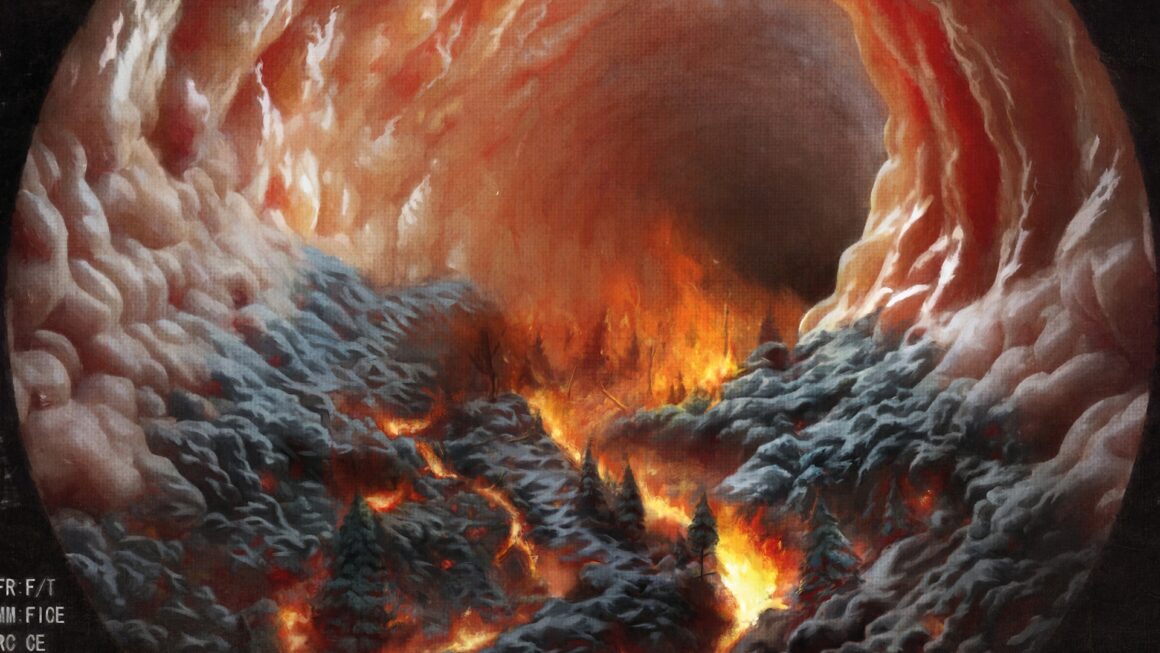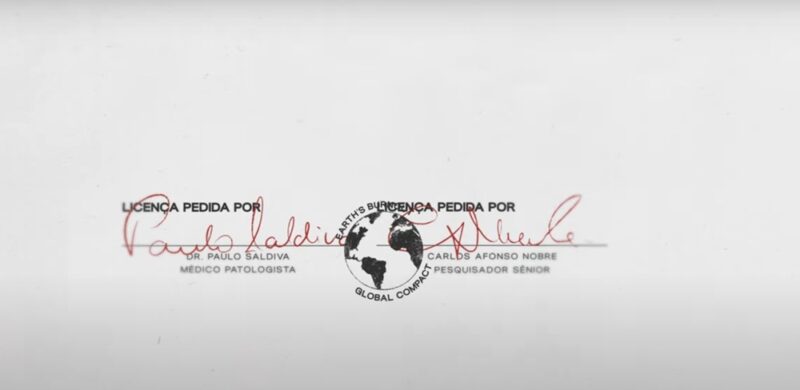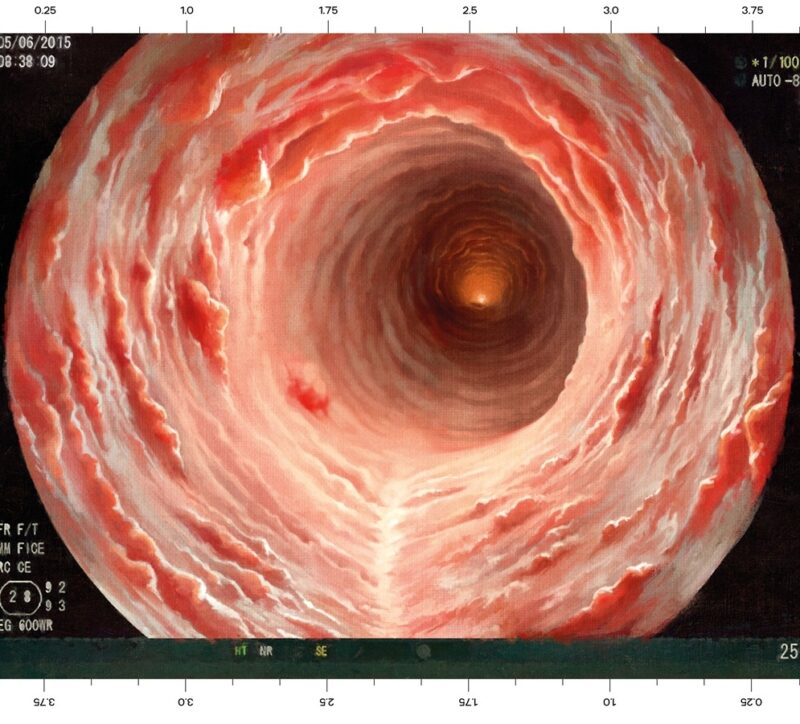In an effort that addresses businesses and encourages them to adopt sustainably responsible practices that align with the Sustainable Development Goals (SDGs), the Global Compact Country Network Brazil — a UN initiative — joined forces with renowned Brazilian researchers and environmentalists for a campaign that draws attention to the impact climate change has on planet Earth. Developed in partnership with agency AlmapBBDO, the initiative launched on the eve of Earth Day (observed April 22nd) and comes just ahead of the implementation of new regulations promoting mental health care for employees (celebrated May 25th).
Dubbed “Burnout da Terra” (“Earth’s Burnout” in English), the campaign attributes the burnout symptoms to Mother Earth. Behaving similarly to humans, who experience fatigue caused by working too hard, our planet cries out for a break. Extreme weather events, wildfires, or the increasing number of endangered species are clear signs of a planet that is suffering. Or, in other words, these are just some of the symptoms that signal burnout in Mother Earth.
A 2024 study commissioned by ecologist William Ripple revealed that 25 of the Earth’s vital signs have reached record levels of deterioration. Attributing a diagnosis to the planet is not only a creative way to make people reconsider the way they treat the environment, but also an innovative tool to humanize the crisis the world is experiencing. Putting this crisis in the same context as human health might make businesses — and individuals as well — to acknowledge the situation and adopt eco-friendly actions to stop (or, at least, slow down) the deterioration process.
The campaign portrays the planet as an ill patient, showing clear symptoms of burnout: stress, insomnia, arrhythmia, weakened immunity, hair loss, high blood pressure, reflux, and fibromyalgia. Drawing on these eight signs, the initiative uses illustrations of medical exams — familiar in their human touch — to spotlight the need for rest our planet urgently needs. Or, a well-deserved “medical leave,” as Brazilian specialists Carlos Nobre, a globally renowned meteorologist, and Paulo Saldiva, the head of the University of São Paulo Medical School’s Pathology department, noted.
Developed alongside the two specialists, the document is a symbolic testament that the Earth is, indeed, sick. The illustrations complementing the initiative — which has a dedicated website — reflect the resemblances between the medical exams “made” for “the degraded planet” and the ones of human beings. “Just as excessive work leads to human burnout, the planet is also suffering — with the same intensity — from a kind of environmental burnout caused by human activity. Extreme climate changes, for example, are clear signs of this ongoing collapse. We urgently need to restore balance — for ourselves and for the Earth,” commented Nobre.
“The Earth is like a living organism, where countries are the organs and the inhabitants are its cells. Comparing the symptoms of burnout to environmental imbalance is a simple yet sad analogy, as the exhaustion of natural resources resembles the systemic collapse of a human body experiencing burnout. In the case of a person, vital functions can recover with medical support and plenty of rest — and the same goes for the planet. Halting the reckless exploitation of natural resources would be like giving the world a chance to rest,” added Saldiva.
The “medical leave” is certified and signed by Nobre and Saldiva. Even though the document is just symbolic, that doesn’t mean that its meaning is fictitious. Addressed to businesses with the request to sign it, the campaign asks private firms to agree on the fact that the Earth needs to rest. By signing the medical leave, the businesses also enter the Global Compact Country Network Brazil.
CREDITS:
Brand: Global Compact Country Network Brazil
Agency: AlmapBBDO











